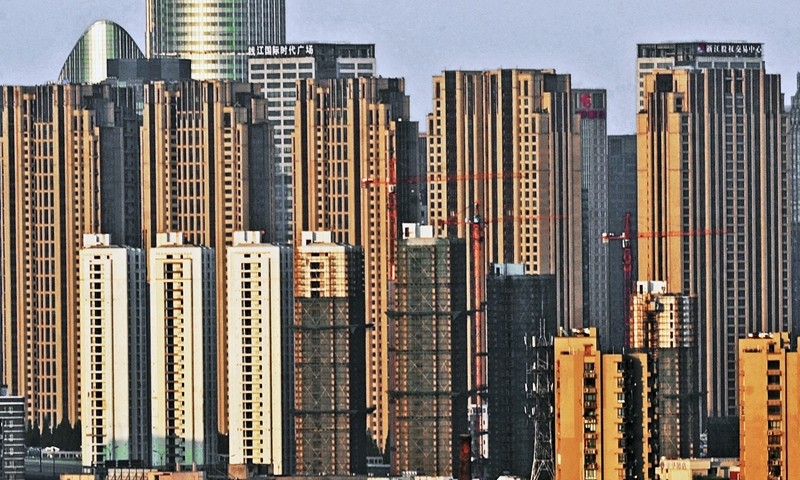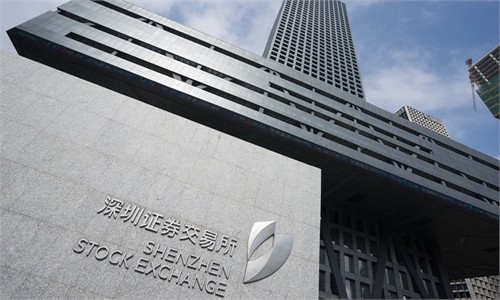
real estate Photo:Xinhua
China's state-owned enterprises (SOEs), especially the centrally administered ones, are ramping up investment in a bid to lift the domestic economy, which has been racing ahead on the recovery track despite some recent economic indicators pointing to a moderate growth pace.
In the first five months of the year, investment by the SOEs administered by the central government reached 1.7 trillion yuan ($234 billion), up 12.5 percent on a yearly basis. Among them, fixed-asset investment excluding that in the real estate sector stood at 1 trillion, up 20.4 percent year-on-year, latest data from the State-owned Assets Supervision and Administration Commission (SASAC) of the State Council showed on Monday.
Since the beginning of the second quarter of 2023, centrally administered SOEs have continuously revved up investment and steadily promoted the implementation of projects, the top state-asset regulator said.
In May alone, investment by centrally administered SOEs exceeded 380 billion yuan, an increase of 19.6 percent from a year ago, according to SASAC data.
"SOEs in general and the centrally administered SOEs in particular play a pillar role in the national economy when the economy faces downward pressure, so it is within the expectation that they are making efforts in investment to help lift the economy," Song Ding, a research fellow at the China Development Institute, told the Global Times on Monday.
"Currently, there is ample state capital that could inject impetus into the economic recovery," Song noted.
A growing number of projects invested by the centrally administered SOEs are accelerating their pace of construction and operation.
In June, the last segment of a new mega-bridge along the Beijing-Xiong'an expressway was completed in Beijing, paving the way for the route's opening scheduled for later this year. The expressway will help reduce travel time between the two locations to about 50 minutes
Separately, a shield tunneling machine for the second Jiaozhou Bay undersea tunnel - the longest undersea highway tunnel in the world with its main section measuring 15.89 kilometers in length - set off from the Qingdao Port in East China's Shandong Province at the end of June, marking the start of the official excavation construction work on the shield tunneling section of the project.
"SOEs are mostly involved in critical sectors that are directly related to the country's economic security and people's livelihood. Their unique role in the national economic system is irreplaceable," Cao Heping, an economist at Peking University, told the Global Times on Monday.
The investment push by the SOEs comes amid a stable yet relatively moderate pace of recovery of the economy, as the real estate market continues to witness a shortage of investment since the start of the second quarter.
The country is mulling policies to promote a sustained recovery of its economy and more stimulus measures are expected to be in the pipeline. In June, the People's Bank of China, the country's central bank, cut the nation's policy rates, sending a clear signal that China is determined to spur the still unfolding economic recovery and unleash the growth potential amid multiple downward pressures.


